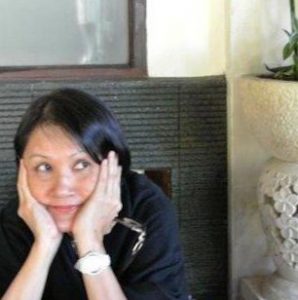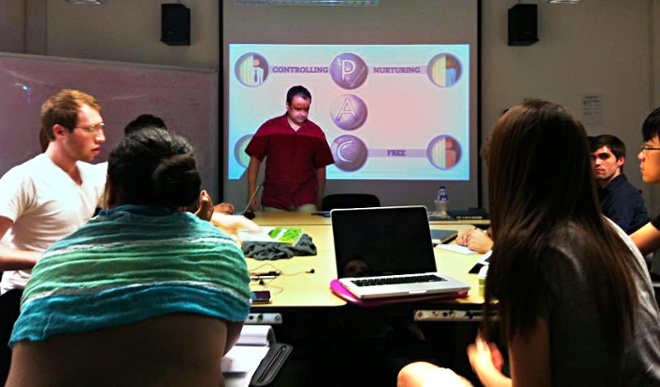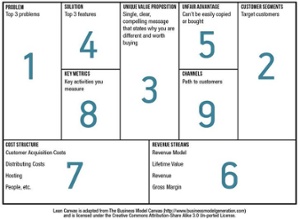 Betty Lim is planning a documentary film about Singapore’s start-up ecosystem. She asked several entrepreneurs, including me, about our life choices. Her questions set me thinking about why some of us decide to become entrepreneurs and what it means for the people close to us. As start-ups and mentors join us for our next accelerator program, we will ask them to reflect on why they are doing what they do, as well as sharing what it is and how they do it. Here are my answers, writes Hugh Mason.
Betty Lim is planning a documentary film about Singapore’s start-up ecosystem. She asked several entrepreneurs, including me, about our life choices. Her questions set me thinking about why some of us decide to become entrepreneurs and what it means for the people close to us. As start-ups and mentors join us for our next accelerator program, we will ask them to reflect on why they are doing what they do, as well as sharing what it is and how they do it. Here are my answers, writes Hugh Mason.
1. What prepared you for what you’re doing?
My career has taken me from being an engineer through TV to building businesses. Only now, in my mid 40s, can I see that there were several common themes through all these activities.
I enjoy building commercial structures around people with ideas. I use many of the storytelling techniques I learned making TV in the first part of my career to help start-up teams visualize their plans and then to make them real. The job is made a lot easier by the fact that there is now a body of helpful academic research that starts to explain how innovation and entrepreneurship happen. On a practical level being part of the Global Accelerator Network, sharing start-up know-how with our peers like TechStars, also helps.
Teaching keeps me prepared for new challenges because it forces me to re-examine and explain things that I have come to take for granted. The questions students ask push me to check my understanding, move it forward and connect parts together in helpful ways.

2. What challenges have you faced and who are your key supporters?
The biggest challenges have been to keep focus and not to lose sight of my passion when things have got tough.
Like every ‘ideas person’ I have many more ideas than I can execute in one lifetime, so I have had to focus on the ones where I can add the most value and where I am best placed to turn them into reality. Then it’s all about execution.
That’s why Meng Wong and I believe that passion really matters for entrepreneurs. We actually passed on a couple of teams that applied for our next accelerator program recently, even though the founders knew what they were doing, because neither they nor we could convincingly explain why. Execution is a slog and, without passion, most of us give up.
Friends have got me through the hard times I have faced striving to build businesses over the last 25 years. Often friends I never even knew I had. When I open my eyes and cast aside prejudice, I find support and mentors all around.
 Sometimes the most unexpected people give me answers to questions I didn’t realize I had to answer. Just before I brought my family to Singapore I hired a painter-decorator to get the home I was leaving behind ready to sell. A couple of days into the job he gave me a book that made a big impression on me.
Sometimes the most unexpected people give me answers to questions I didn’t realize I had to answer. Just before I brought my family to Singapore I hired a painter-decorator to get the home I was leaving behind ready to sell. A couple of days into the job he gave me a book that made a big impression on me.
3. What have been the key successes and milestones for you to date?
My TV business won awards creating science shows that were seen by millions of people around the world on channels like Discovery, the BBC and National Geographic. So I guess that’s a kind of cultural success.
In terms of changing the world in a small way I am proud of the social impact which the charity I set up with a friend has made. We wanted to inspire more undergraduate Science, Technology, Engineering and Maths students to become teachers by giving them the chance to try it as an accredited part of their degree course. 25% of all UK university departments now use the structures we created to do that and thousands of young people have become teachers as a result who might otherwise not have considered the career. I feel good about that and also that we have wound down the charity now that it has done its job.
Commercially, I have a hunch that the businesses we are building at JFDI.Asia will achieve the biggest impact. Asia is where the money, the market opportunities and the hunger to build a new world is focused right now. I brought my family here to be part of that excitement.
The next billion people are coming online all around us and there are countless opportunities to bring value to their lives, creating wealth for everyone along the way. Imagine the talented people who are out there in towns and villages now being connected to the world of ideas and information for the first time. Given access to the tools, great minds find a way to turn local difficulties into opportunities and I am hugely looking forward to being part of that.
4. Based on your experiences, what can be done to enable more successful startups?
Over the last decade, new research and practical methods have shown that innovation need not be a mystery and entrepreneurship need not be painful or lonely. Both can be learned, working with peers and guided by mentors.
It is an exciting time to create businesses because the path to success now seems a lot less random and risky. Entrepreneurship is becoming less exclusively a mysterious Art and more of a reproducible Science. The reason that Meng and I call JFDI.Asia an Innovation Academy is because we believe that bringing people together to share know-how is the most valuable thing we can do.
There are so many ideas that I want to explore and so little time to do it. I am now halfway through my life and in another 15-20,000 days I will be dead. I try to help entrepreneurs who are squabbling over equity splits, or beating themselves up because a project didn’t work out, to remember that the only truly scarce resource each of us has is time. It often feels like money is the shortage but in a place like Singapore there is more money available for good ideas than any of us can imagine.
 Armed with the new science of start-ups, all of us can make use of the irreplaceable gift of life we have been given to try and make the world a better place, in big and small ways. That is the true meaning of the word ‘wealth’ and material prosperity follows it. Seeing ideas become reality is my passion and the best part about that is that it’s never a zero-sum game. Buy a plot of land, mine the minerals from it and they are gone. But if I have a great idea, that doesn’t stop you having a better one ten minutes later. I think it might help to foster more start-ups if we stopped using accounting and economics from the era of things and instead created a new way of valuing ideas.
Armed with the new science of start-ups, all of us can make use of the irreplaceable gift of life we have been given to try and make the world a better place, in big and small ways. That is the true meaning of the word ‘wealth’ and material prosperity follows it. Seeing ideas become reality is my passion and the best part about that is that it’s never a zero-sum game. Buy a plot of land, mine the minerals from it and they are gone. But if I have a great idea, that doesn’t stop you having a better one ten minutes later. I think it might help to foster more start-ups if we stopped using accounting and economics from the era of things and instead created a new way of valuing ideas.
Part of that is seeing our own role as entrepreneurs more clearly. I guess that every culture has a saying something like ‘it takes a village to raise a child’. That’s what Meng and I mean when we use the word ‘ecosystem’. We mean everybody and everything it takes to contribute to and share in success. Very little of this is a ‘zero sum game’ and every time someone succeeds, anywhere in the region’s ecosystem, that brings confidence and new insight to all of us.
Betty Lim welcomes comments and opinions on her documentary project.

